Owning and learning from failure is a thing most foundations still seem eager to put off. Many of the reasons for this are evident, but three main obstacles prevent them from seeing learning from their failures as a science rather than an art
If we are not making mistakes, we are not trying hard enough, the refrain goes. While this seems to be a common mantra in business, at least for some companies, it is certainly not true for all of philanthropy, at least not yet. To be fair, there have been several examples of foundations that have been very open about their ‘failures’, such as Hewlett Foundation and Case Foundation, and various field-building attempts in philanthropy and global development at normalising and celebrating failure, but these are mostly one-off, ad-hoc, limited in scope efforts and none of them has managed to make philanthropy, as a field, overcome its aversion to embracing failure. ‘Failure’ is still rarely acknowledged, mostly because it is poorly understood, and importantly, how to learn from it effectively is still viewed by most organisations as more of an art than a science.
There is a need to de-mystify the why, what, how of failure.
I see three main challenges that hold philanthropy back from fully embracing learning from failure:
Why care about failure? There is a lack of understanding about why embracing failure is a good thing – in philanthropy and more generally. Failure is widely viewed as a negative, emotionally charged experience that is associated with shame, embarrassment, even ridicule. So, it’s easier to not talk about it and avoid putting it out in the open. While that might be the natural response of many individuals and organisations, we are failing (pun intended) to see failure in a different light: as Amy Edmondson writes in her Harvard Business Review piece, ‘tolerating unavoidable process failures in complex systems and intelligent failures at the frontiers of knowledge won’t promote mediocrity. Indeed, tolerance is essential for any organization that wishes to extract the knowledge such failures provide.’[1] To get even more specific, science tells us that there might even be a ‘sweet spot’ for failure (the 85 per cent rule) that allows us to maximise our rate of learning. Intelligent failure is indeed the frontier.
We often hold on to the bizarre assumption that learning from failure is easy: once the failure is known, learning from it is straightforward – simply don’t repeat the same thing again!
What is failure? Because the business of philanthropy is inherently complex, even knowing what constitutes a failure is challenging due to the systemic nature of our work – long-term time horizons, confounding variables, poorly understood causal pathways, and various other factors make the definition of ‘success’ and by extension, ‘failure’, very difficult. So, we often oscillate between holding on to a sense of false precision (adopting rigid key performance indicators and timeframes) or resigning ourselves to the fact that very little can ever be known, measured, understood, or attributed to philanthropy’s efforts. These are of course extremes, but there are many examples in the foundation world of leaning towards these black and white opposites, resulting in a binary and overly simplistic assessment of ‘failure’ vs ‘success’.
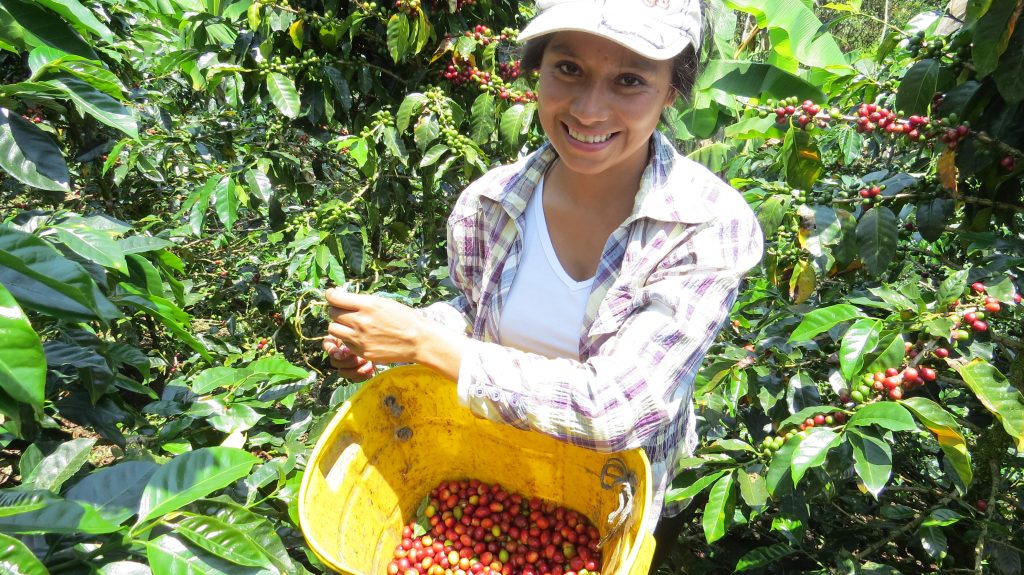
The Fortalezas programme helped young people into employment in Argentina, Brazil and Colombia. Credit: Jacobs Foundation
How do you learn from it? We often hold on to the bizarre assumption that learning from failure is easy: once the failure is known, learning from it is straightforward – simply don’t repeat the same thing again! What happened and why and how it happened is rarely systematically analysed or dissected, let alone planned for proactively at the outset. Opportunities for emergent learning are missed. This may have to do with the lack of a culture of learning which is the foundation to everything related to learning intelligently. Concepts such as single, double, triple loop learning – going from observing our behaviours and actions to learn from them (single loop), to questioning our assumptions and underlying root causes (double loop), to examining and challenging our learning frameworks and organisational models (triple loop) – are well established and widely written about in the organisational learning literature but are still the exception and not the norm in most organisations.
Moving from accidental learning to failing intelligently
As an essential step, what is needed in philanthropy is a shift in mindset that fully embeds systematic, intentional, proactive – vs ad-hoc and accidental – learning as part of its culture and even encourages intelligent failure. This requires leadership and commitment and means putting the systems and processes in place to proactively test our hypotheses, articulate our assumptions, continuously collect data, refine methods and work together with our partners and peers to iterate, learn and improve. According to Canadian-based agency Fail Forward (which describes itself as the world’s first failure consultancy), ‘intelligent failures are those that arise from thoughtful actions or experiments – what we like to call smart risks – and result in useful learning, allowing us to move forward more wisely.’ They also emphasise that intelligent failure is a learned skill, which is exactly the point. It does not happen by accident. As with any skill, it requires adequate resources and time commitment and institutional support in the form of adequate processes, systems, and structures to embed and institutionalise it as a core competence. How to do this in practice can take different shapes and forms for each organisation, but the good news is that there is a plethora of useful resources and organisations that offer support, insights, and expertise that we can all make much better use of. We don’t have to reinvent the wheel.
We had to ask ourselves – how can we mitigate the fear of failure without holding ourselves back from taking risks and striving for the ‘moonshots’?
Secondly, learning from failure systematically is commonly practised by some of our own grantee partners. Ironically, many funders support and encourage their grantees to adopt this mindset but are slow to embrace it themselves. This emphasises yet another aspect of the disconnect we often find between how funders and their grantee partners set expectations and hold each other accountable not only for outcomes, but also for learning. How often do you hear a grantee asking the funder: what did you learn, let alone what and how did you learn from a failure? ‘Failures’ are almost never the result of individual players but are rather the result of the interplay of actions, behaviours and attitudes of several actors operating in complex systems, which is why defining ‘success’ and ‘failure’ and engaging in transparent, intentional, evidence-based learning together with our grantee partners can be very powerful.
And, finally, perhaps this sounds very clichéd, but it is worth stating again that bold leadership and a fundamental culture shift are both needed to fully embrace failure. What this means is that thinking about how to learn from it and doing the learning should not be confined to the ‘learning & evaluation’ team or the ‘external evaluators doing our MEL’ – while those teams can create the frameworks and systems that are needed to promote this, it is the responsibility of everyone within the organisation, from programme staff, to management, and the board. Developing our accountability structures to embrace a shift towards learning from failure – to incentivise praiseworthy failure – is yet another important frontier.
Learning how to learn – becoming learning organisations
I realise that embracing ‘intelligent failure’ is much easier said than done. I know this because the issues I highlight are exactly the questions we grapple with to shift our own foundation to
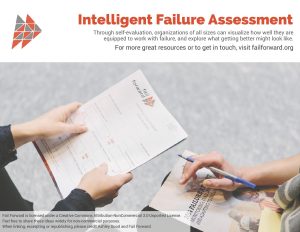
Resources from Fail Forward, the ‘world’s first failure consultancy’.
Credit: Ashley Good/Fail Forward
becoming a more effective learning organisation. Simply saying that there is no magic bullet is a major understatement – learning how to learn is the ultimate frontier for many of us.
But as I say this, I am also hugely optimistic that more organisations are taking on this major task and are making very bold steps to fully embrace the learning mindset and promote systematic learning within their organisations, together with their partners and the broader field. I am inspired by the organisations that have opened themselves up and shared their perspectives on failure in this Alliance special feature. I hope that we will see many more such discussions out in the open – and I hope that this is the harbinger of a major shift to seeing learning from failure more as a science than an art.
We need to overcome simplistic views about what failure is and get down to the business of systematically understanding what it means to us as organisations, how we will recognise it, and what we will do to avoid it in the future – as a planned, structured, data-driven process promoted by a culture of openness, trust and intellectual rigour. The challenge ahead of us is to see ‘failures’ as stepping stones to ‘success’ and to do it in an inclusive, transparent, and intentional way. We can learn from failure accidentally but learning from failure intelligently can bring a whole new set of opportunities to making a difference in the world.
The pathway to embracing intelligent failure
At Jacobs Foundation, when we launched our Strategy 2030 a year and a half ago, we set out a new strategic path and launched several programmatic initiatives that set a new level of ambition for what the foundation wanted to achieve over the next decade. While this was an exciting development, it also meant that we were starting to explore uncharted territories which we knew would throw up some unknowns we couldn’t yet anticipate. We had to ask ourselves – how can we mitigate the fear of failure without holding ourselves back from taking risks and striving for the ‘moonshots’?
We decided to approach this question head-on by looking at ways to create a more systematic way of learning about what is going well and what is not. The starting point was to learn from good practice in this space – what are our peers doing to learn more effectively? What experiences can we replicate and build on? What internal shifts (related, for instance, to culture, leadership, mindset, resources) would be required to get this institutionalised? This initial exploration led to the decision to onboard a learning and evaluation partner that would accompany the foundation’s work from the start. They would track our efforts and provide us with a real-time pulse-check of what is going well and what needs more attention. The ultimate goal is to be more proactive and systematic about setting learning milestones that detect signals of potential ‘success’ and ‘failure’ early on.
One important realisation so far has been that while there are many conceptual frameworks and useful (though fragmented) resources and tools, there isn’t yet much in the way of consolidated practical experience, evidence-based guidance and proactive sharing of promising practices that foundations can tap into to become more effective learning organisations. This is a further frontier for investment.
Donika Dimovska is Chief Knowledge Officer at the Jacobs Foundation, Switzerland.
Email: donika.dimovska@jacobsfoundation.org
Twitter: @Ddimovs
Footnotes
- ^ tinyurl.com/edmondson-harvard-review
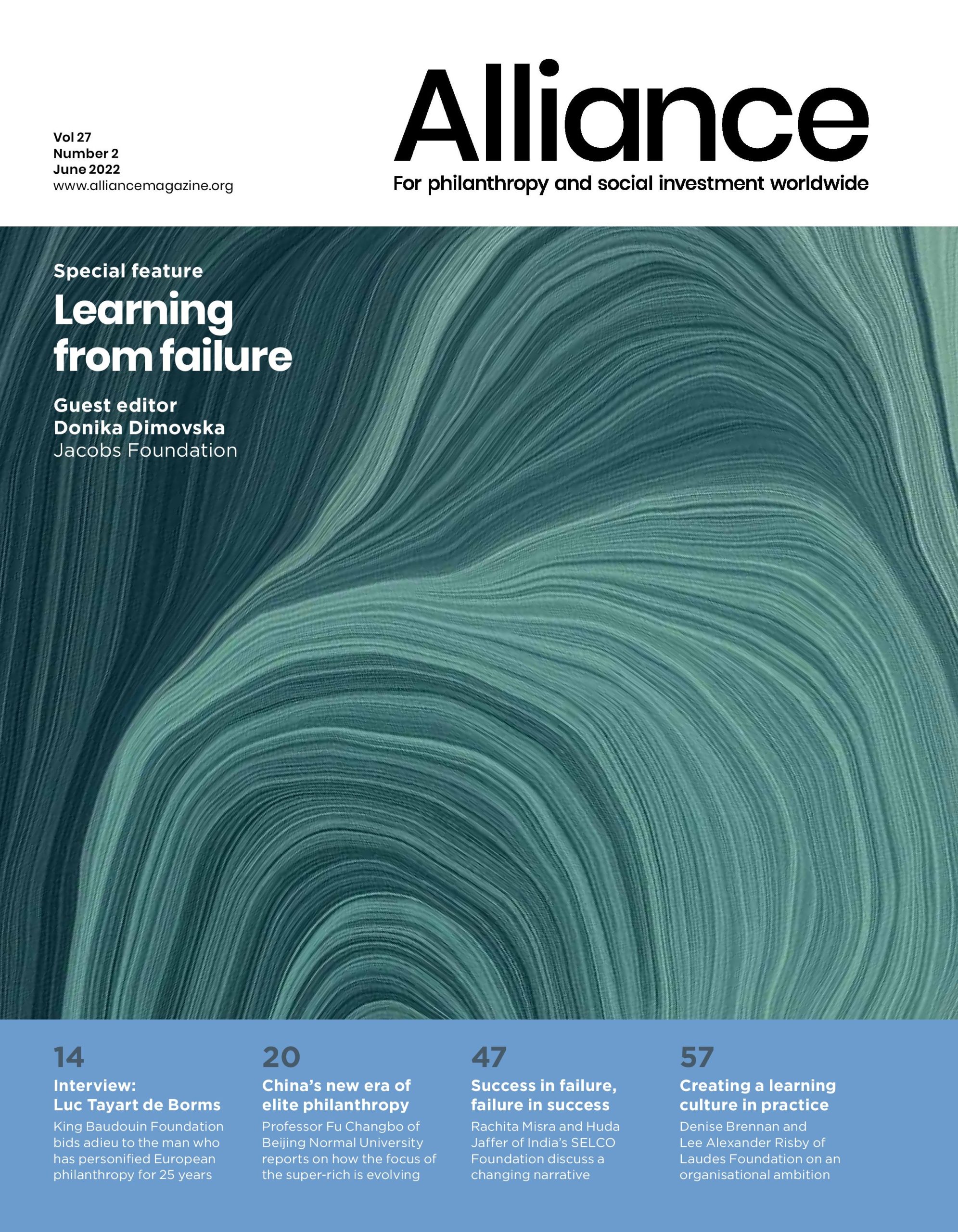
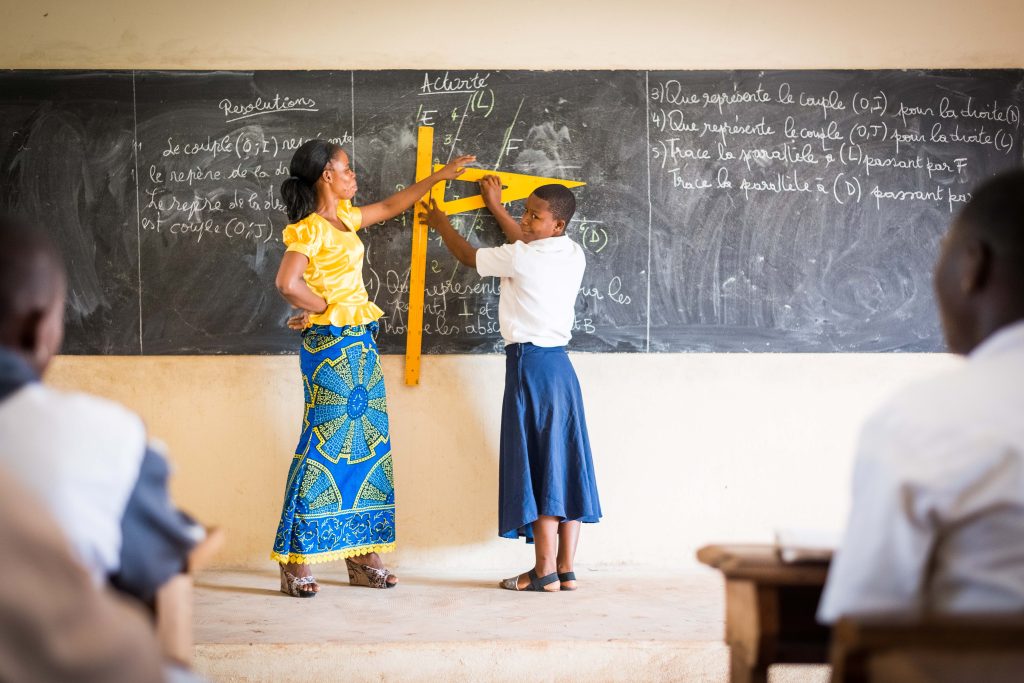
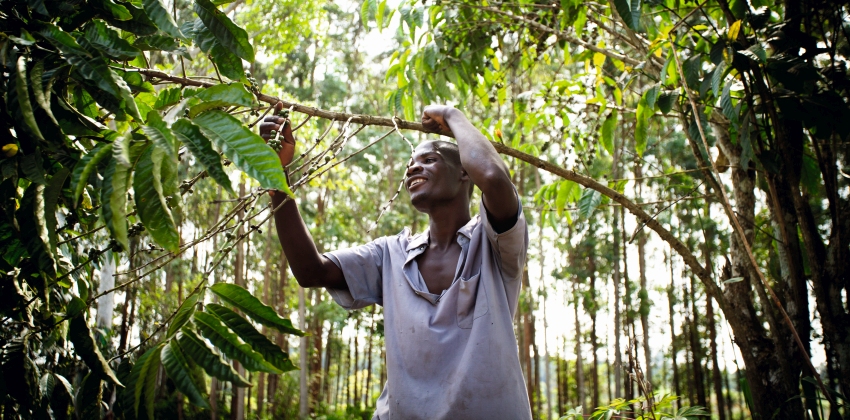



Comments (0)